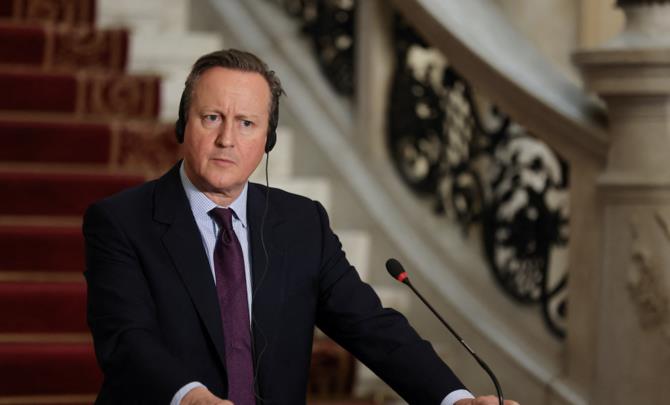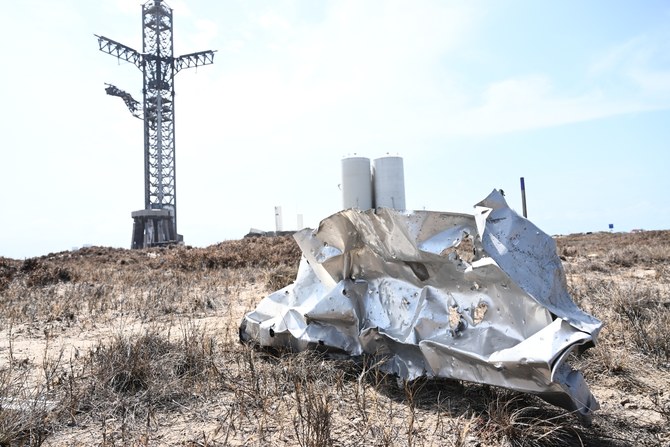
Few European countries have had closer ties to Palestine than the UK, which ruled the country through the Mandate for Palestine for almost three decades and had the most important role in establishing the state of Israel. As such, its views on Gaza and the wider question of Palestine matter very much. London can and should play a greater role in this conflict than has been the case recently.
England’s ties to Palestine are centuries-old. It participated in the Second (1145-1149), Third (1189-1192) and Ninth (1271- 1272) Crusades, with nominal involvement in some of the others. The adventures of King Richard (Richard the Lionheart) were the stuff of legend for a long time.
Its modern engagement goes back to the early 19th century, but it solidified during the First World War. On Nov. 2, 1917, before Britain conquered Palestine, it published the Balfour Declaration, stating that it viewed “with favor the establishment in Palestine of a national home for the Jewish people, and will use their best endeavors to facilitate the achievement of this object, it being clearly understood that nothing shall be done which may prejudice the civil and religious rights of existing non-Jewish communities in Palestine.” Those “non-Jewish” communities accounted for about 90 percent of the population at the time, according to UN figures.
The next month, British forces seized Jerusalem and then the rest of the country, which was administered by the British for the remainder of the war. In 1919, Britain extracted control of Palestine through the Paris Peace Conference and appointed Herbert Samuel, a senior official responsible for drafting the Balfour Declaration, as the first high commissioner. In 1920, the League of Nations granted Britain, at its request, a mandate over Palestine to put into effect what it promised in the Balfour Declaration.
Britain’s actions were unambiguous in facilitating the establishment of Israel in parts of the Palestinians’ homeland.
Dr. Abdel Aziz Aluwaisheg
Palestine was under British rule for nearly three decades, during which time the country was engulfed in violence. The mandatory power facilitated the establishment of the state of Israel but failed to safeguard the rights of the majority of the population of Palestine. At times, it used excessive violence to suppress Palestinians’ protests, while ignoring warnings from Arab countries, such as Saudi Arabia, and others around the world. The region has been in turmoil ever since, with many of the conflicts originating from or heightened by the failure to address the Palestinians’ plight.
In 1947, Britain proposed a partition plan without taking into consideration the views of the Palestinians, who accounted for about two-thirds of the population at the time. They opposed the plan and described it as unfair, as it gave Jews more than half of the country even though they accounted for less than a third of the population. Britain got this partition plan approved by the UN General Assembly on Nov. 29, 1947. The plan envisaged the creation of separate Jewish and Arab states, operating under an economic union, and with Jerusalem transferred to UN trusteeship. Two weeks later, London announced that the British Mandate would end on May 15, 1948. On the last day of the mandate, the Israeli Declaration of Independence was issued.
While scholars differ on the exact textual meaning of the Balfour Declaration and its implications, Britain’s actions were unambiguous in facilitating the establishment of Israel in parts of the Palestinians’ homeland. Given the bloody history that followed that fateful decision in 1917, including the current war of annihilation being waged by Israel against Gaza, one suspects that there may have been some doubts about the wisdom of that decision and the manner in which it was carried out.
But in fact, the UK appears to still be proud of that achievement, judging from the centenary commemoration of the Balfour Declaration in 2017. Then-Prime Minister Theresa May said: “So, when some people suggest we should apologize for this letter, I say absolutely not.” She added: “We are proud of our pioneering role in the creation of the state of Israel. We are proud to stand here today together with Prime Minister (Benjamin) Netanyahu and declare our support for Israel. And we are proud of the relationship we have built with Israel. And as we mark 100 years since Balfour, we look forward to taking that relationship even further.”
There is no question that Britain’s efforts played a large part in Israel’s founding and that it would take its counsel seriously. The US, Israel’s main and at times only backer, frequently defers to London’s advice on the Israel-Palestine conflict. Other Europeans equally value the UK’s opinion as the country most involved in the modern history of Palestine.
There is no question that Britain’s efforts played a large part in Israel’s founding and that it would take its counsel seriously.
Dr. Abdel Aziz Aluwaisheg
Despite the mixed memories of Britain’s mandate in Palestine, many Palestinians and other Arabs value the country’s advice, even when they disagree with it. They expect London to play a bolder and more constructive role.
The UK can play that role, especially amid today’s polarization in the UN Security Council and the ensuing paralysis in the UN system. The US, the country with the most sway over Israel, is preoccupied with its upcoming presidential and congressional elections.
Arab and Muslim countries have presented serious proposals to address the war in Gaza and the wider Israel-Palestine conflict, calling for full normalization between Israel and its neighbors. What is on the table, the Arab Peace Initiative, is a historic compromise, along the 1967 lines, for two states living side by side in peace and security. Holding the rotating presidency of the Arab League and the Organization of Islamic Cooperation, Saudi Arabia is spearheading the combined efforts of these two blocs to engage and reach a resolution to the conflict. They are being supported by the EU and almost every country around the world.
The UK could join these efforts. With its impeccable credentials, historical responsibility and unique role in Palestine, it can make a difference and help those endeavors bear fruit.
Dr. Abdel Aziz Aluwaisheg is the Gulf Cooperation Council assistant secretary-general for political affairs and negotiation. The views expressed here are personal and do not necessarily represent the GCC. X: @abuhamad1












